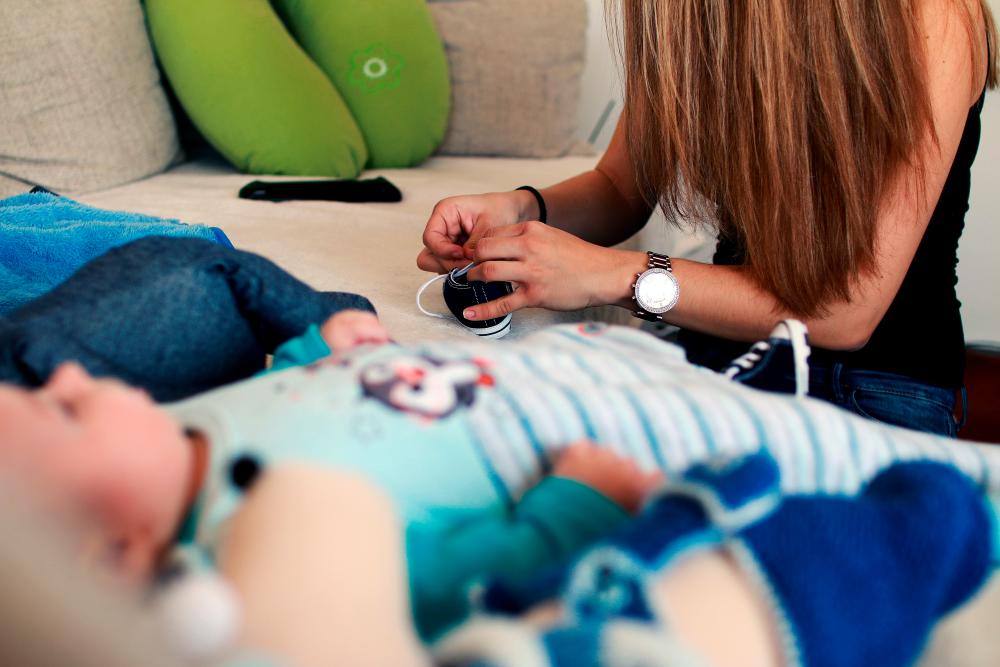IN a plush office in the city, Nita is seen swamped with work, back-to-back meetings and loads of paperwork to catch up on.
She starts as early as 8am and on good days she may be able to reach home at 8pm. She will then have about an hour with her son, who is 18 months old before he goes to sleep.
She then continues with a host of domestic chores before she goes to bed.
Her husband is equally adapting to both caring for the baby and household chores.
By the time they both go to bed, it is close to midnight.
The next morning, the alarm rudely wakes the young couple up at 5.30am and both husband and wife start preparing for the day.
The baby is neatly dressed up and is sent to a reluctant relative’s house for babysitting.
In the office, Nita makes frequent calls to check if things are going okay with the baby.
Nita is expecting her second child and has frequent bouts of related discomfort and her coping mechanisms are put to the extreme test on some days.
Both Nita and her husband have been hoping after hope that they could hire a maid which will ease their workload at home and provide an alternative for baby care, but there does not seem to be any light on this.
The recent warning front-paged in the media to stop hiring maids through illegal means has put further spanners on young families trying to manage the situation.
There are thousands of couples like Nita and her husband who have been struggling with work and family, some on the verge of despair.
There is no news and no reprieve as to when they will be able to hire a maid to help them with their difficulties.
Nita is even regretful about her second pregnancy and thought she could have postponed it to later, but her biological clock is ticking and it has to be now or never.
Another harassed family is that of Lim (not his real name). His mother is aged 86, with limited mobility and needs round-the-clock care.
Lim has been fraught with having to juggle between work and home.
His wife is also working and their children are still in school.
Lim and his wife struggle through working days, with a day-care nurse for the mother that is costing the family a lot.
He has been waiting to hire a maid to care for his mother and to keep an eye on the children, nothing has happened.
Both Lim and Nita are stressed and angry that the government does not seem to care that there are people with extreme needs who require maids and nothing has come out of months of negotiation with various governments.
The thought of an initial outlay of RM20,000 to hire a maid is beyond even the M40 population’s affordability.
In countries like Germany, the government has set up an excellent support system for young mothers, which includes extended maternity and paternity leave, and government-aided nurseries, where babies are cared for without the new mother having to go through the angst and worry about the baby’s welfare.
In the United Kingdom mothers are lucky as the UK offers a generous one year paid maternity leave no matter how long or short an expecting mother has worked for the employer.
In Sweden mothers and fathers are equally able to take 480 days of maternity/paternity leave.
The leave available to both sexes was designed to promote better gender equality policies so that 240 days are allotted to each parent totalling 480 days.
Leave can be taken at any time from birth until the child is eight years old and pays out 80% of their salary.
Mothers in Norway get paid 100% of their salary during their 46 parental leave weeks, or they can choose 80% of their salary and extend their leave to 52 weeks.
Plus, after each child, both parents get two weeks to spend with the baby. The remaining 46 weeks can be divided.
Similar to Sweden, the maternity programme is designed to help new mothers get back to work if they choose to do so and honours the role of the father in taking time off to bond with the baby.
Norway also offers flexible and generous childcare essentially paying for private and public daycare subsidised by the government.
All Norwegian children qualify for free daycare once they turn one year old.
Well, both Sweden and Norway are in the top ten of the world’s happiest nations.
Meanwhile, I am not in awe about Singapore offering cash incentives for each baby born, but it has to do more to provide subsidies and childcare options, which are slow in coming.
Back home, the creche concept gained publicity it didn’t deserve and some bigger organisations took it seriously and indulged, setting up the facility with budget allocations.
Yet, it is not wide enough and does not serve the majority of new mothers, especially in the M40 and B40 groups.
If the government does not channel sufficient emphasis and resources to tackle the issue of maids, we will lose out, with young families opting not to have children, which will negatively affect the nation’s population growth.
A more severe consequence would be women leaving the workforce and never returning, to the detriment of the country losing good talents.
The hiring of maids empowers women and the Women, Family and Community Development Ministry should be looking into this issue as a primary concern, instead of creating sensations with puerile talks.
Comments: letters@thesundaily.com















